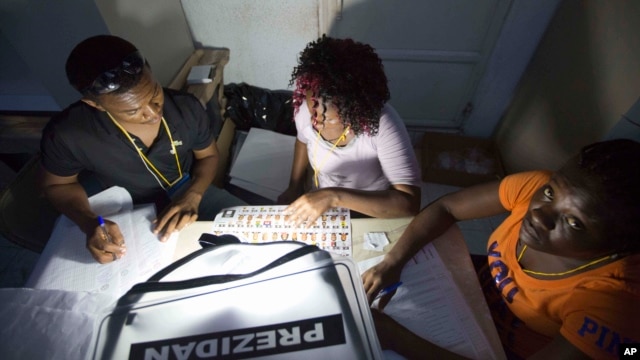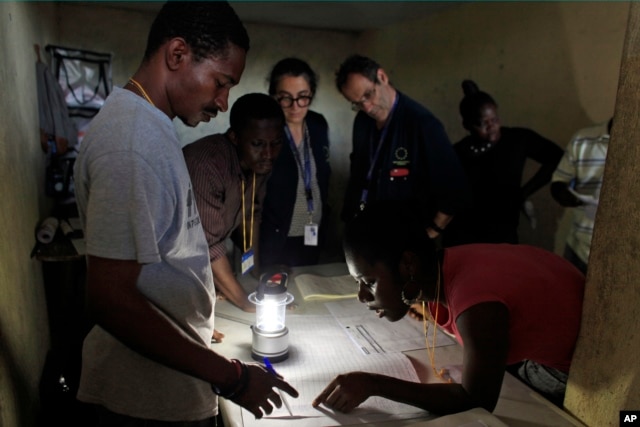Haiti Waits for Results of Presidential Election
Electoral workers count ballots during their country's general elections, in Port-au-Prince, Haiti, Oct. 25, 2015.
Last updated on: October 26, 2015 9:59 PM
Election officials in Haiti are counting ballots from Sunday's vote, a lengthy process that will take at least a week before producing preliminary results.
The ballots were being trucked from around the countryside to tabulation centers in the capital, Port-au-Prince, where the votes will be logged twice to ensure reliability.
Election observers say Sunday's vote was largely free of major problems and the violence that plagued parliamentary elections in August.
Prime Minister Evans Paul praised what he said were transparent elections. "With these elections, we have gained the image of a responsible country, capable of democratically naming its leaders," he said Monday.
Thousands of Haitian police and a United Nations peacekeeping force were deployed around the country Sunday to insure a peaceful vote.
Haitians voted for a new president from more than 50 candidates running for the country's top office, as well as casting ballots for lawmakers and local officials.
A runoff presidential vote will be held in December between the top two candidates.
Two people have emerged as serious contenders in the race -- Jude Celestin, who was eliminated from the second round in the controversial 2010 vote following an OAS recount, and Maryse Narcisse, a physician who has the backing of former president Jean-Bertrand Aristide.
Members of the European Union Election Observation Mission, behind, observe electoral workers count ballots at a polling station at the end of the national elections in Port-au-Prince, Haiti, Oct. 25, 2015.
Haiti was struck by a devastating earthquake in 2010 and has been struggling to recover ever since. More than one million people were left homeless, forcing them to sleep in make-do facilities, often a tent crafted out of a tarp or cardboard or tin.
A cholera epidemic followed the earthquake, delivering another blow to the Caribbean republic that is the poorest country in the Western Hemisphere.
Today, some hard-hit sites in Port-au-Prince have changed dramatically and most lots are cleared of rubble. However, thousands of people are still struggling to eke out a living. Despite the billions of donor dollars pledged to Haiti following the quake, the government blames a shortage of funds for the slow pace of reconstruction work.



No comments:
Post a Comment